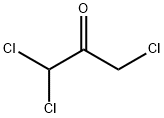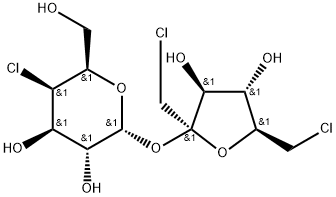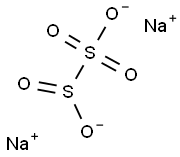A7873312
1,1,3-Trichloroacetone , >80.0%(GC) , 921-03-9
Synonym(s):
1,1,3-Trichloro-2-propanone;TCA
CAS NO.:921-03-9
Empirical Formula: C3H3Cl3O
Molecular Weight: 161.41
MDL number: MFCD00040500
EINECS: 213-063-6
| Pack Size | Price | Stock | Quantity |
| 1G | RMB55.20 | In Stock |
|
| 5g | RMB159.20 | In Stock |
|
| others | Enquire |
Update time: 2022-07-08
PRODUCT Properties
| Melting point: | 9-11 °C(lit.) |
| Boiling point: | 88-90 °C76 mm Hg(lit.) |
| Density | 1.512 g/mL at 20 °C(lit.) |
| vapor pressure | 30-350Pa at 20-50℃ |
| refractive index | n |
| Flash point: | 80 |
| storage temp. | Refrigerator, under inert atmosphere |
| solubility | Chloroform, Methanol |
| form | Oil |
| color | Clear Colourless |
| BRN | 1746647 |
| InChIKey | ZWILTCXCTVMANU-UHFFFAOYSA-N |
| LogP | 0.45 |
| CAS DataBase Reference | 921-03-9(CAS DataBase Reference) |
| NIST Chemistry Reference | 2-Propanone, 1,1,3-trichloro-(921-03-9) |
Description and Uses
1,1,3-Trichloroacetone is direct-acting mutagens in the Ames/Salmonella assay. It is precursor for the generation of 1,3-dihalo oxyallyl intermediates, which undergo [4 + 3] cycloadditions with a host of 1,3-diene systems.
1,1,3-Trichloroacetone is a reagent used to synthesize chlorinated 5-hydroxy-4-methyl-2(5H)-furanones and mucochloric acid. In addition, it can also be used to synthesize (+)-Phorbol. Phorbol derivatives are important for biomedical research and capable of stimulating T-cell activation, proliferation and cytokine production.
Safety
| Symbol(GHS) |    GHS05,GHS06,GHS09 |
| Signal word | Danger |
| Hazard statements | H301+H311-H314-H330-H410 |
| Precautionary statements | P273-P280-P301+P310+P330-P303+P361+P353-P304+P340+P310-P305+P351+P338+P310 |
| Hazard Codes | T+,N |
| Risk Statements | 25-26-34-50/53-68-21 |
| Safety Statements | 26-36/37/39-45-60-61-28 |
| RIDADR | UN 3390 6.1/PG 1 |
| WGK Germany | 3 |
| RTECS | UC3840000 |
| HazardClass | 6.1(b) |
| PackingGroup | III |
| HS Code | 29147000 |
| Toxicity | mmo-sat 50 mL/plate ENMUDM 7,163,85 |





